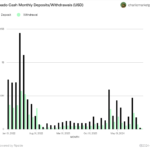
Think of the term “insider trading,” and what comes to mind? Maybe someone in a suit, whispering about a secret new product or a quarterly earnings report that’s yet to drop. Perhaps there’s a park bench involved, or an envelope, or a lot of whiskey.
That image is now outdated. The explosion in popularity of prediction betting markets like Polymarket this year has not just changed how people make money online—it’s also revolutionized the pool of who, exactly, has access to information with potentially extraordinary trading value. And that’s precisely how it should be, according to one of the country’s foremost experts on prediction markets, Robin Hanson.
It may seem unfair, but “fairness” isn’t the primary objective—it’s accuracy, he explains.
“If the point of [prediction] markets is to get accurate information on the prices, then you definitely want to allow insiders to trade, even if that discourages other people from betting because that makes the prices more accurate,” the George Mason University professor told Decrypt in an interview. “And that’s the priority.”
In the world of prediction markets, secrets worth millions of dollars are no longer just for Wall Street executives; they’re now the domain of podcast bookers, crypto employees, and social media account managers. Earlier this week, a Polymarket bet speculating on the conclusion of an upcoming HBO documentary about the origins of Bitcoin amassed over $44 million in wagers.
What if an editor on that film placed a bet, knowing the outcome in advance? Or a gaffer who was on set, or a marketing executive who saw an early screening, or an HBO assistant who overheard the right phone call? Should all these people now be held to the same standards as high-powered CEOs discussing privileged information?
That’s a big question, and one that may garner different answers depending on how you approach it.
Hanson told Decrypt that the reason insider trading is illegal on Wall Street, for example, is to promote a concept of fairness. If everyday investors believed that stock markets weren’t fair, they wouldn’t buy stocks—and that would be a major problem for all companies involved, not to mention the U.S. economy.
Prediction markets, however, run on a different premise. They don’t exist to attract as many participants as possible, Hanson says. They exist to accurately predict future outcomes.
If I worry about the potential for insider trading, I’m less likely to provide liquidity to the market.
But even within the tiny slice of academia devoted to studying prediction markets, there is disagreement on that point. Eric Zitzewitz, a Dartmouth professor who has examined prediction markets for decades, contends that if a platform like Polymarket allowed insider trading, the resulting reputational damage could turn off everyday bettors to an extent that would actually devastate price accuracy.
“If I worry about the potential for insider trading, I’m less likely to provide liquidity to the market,” Zitzewitz told Decrypt. “And those effects can actually be a bigger deal in terms of reducing the accuracy of the market.”
The economist elaborated that, perhaps counterintuitively, prediction markets require loads of uninformed investors to function. These low-information investors provide much-needed liquidity—in other words, the money needed to pay out these bets—and scaring them away could tank a market’s effectiveness in predicting the future.
That’s why Thomas Rietz, another prediction markets expert based at the University of Iowa, describes the task of platforms like Polymarket as a delicate dance between attracting high-information and low-information traders. High-information traders, including insiders, won’t come to a market unless low-information traders have provided enough liquidity to create a potential profit. Low-information traders won’t come without trust.
“It’s a balancing act,” Rietz told Decrypt.
How are platforms like Polymarket faring when it comes to performing this balancing act? So far, no major insider trading scandal has rocked any bets listed on the company’s platform. But there is not much to currently give Polymarket users faith that insiders aren’t betting against them.
Polymarket has no know-your-customer (KYC) requirements, meaning that any user can anonymously create a Polygon wallet to make bets on the platform. It would thus appear difficult, if not impossible, for the company to determine if an HBO assistant was among the thousands of anonymous wallets betting on the HBO documentary market.
A person familiar with Polymarket’s operations who requested anonymity to speak candidly told Decrypt that insider trading “is strictly prohibited” by the company’s terms of service, and that only on one occasion has such an issue ever arisen. In that case, the person said, the user in question’s wallet was frozen in a matter of hours.
Polymarket’s terms of service, however, do not mention “insider trading,” “insider information,” “insider knowledge,” or any similar language related to insiders or privileged knowledge. The above source pointed only to a section of Polymarket’s user agreement that prohibits “activity that violates any Applicable Law, rule, or regulation concerning the integrity of trading markets.”
The same source also declined to explain how Polymarket could prevent insider trading if it did not collect identifying information about all of its customers.
Some of the potential legal implications of this state of affairs may have been mitigated in January 2022, when Polymarket agreed to leave the United States. That month, the company received a $1.4 million fine from the Commodity Futures Trading Commission (CFTC) for allegedly offering illegally unregistered event-based options contracts. The CFTC said Polymarket had never registered with the regulator as a designated contract market.
Currently, Polymarket is not available to U.S.-based IP addresses, despite the fact that most of the company’s leadership lives in New York, and the site’s most popular bets pertain to American politics, sports, and popular culture. The platform’s market on the upcoming U.S. presidential election, for example, has attracted over $1.6 billion in bets.
If it were registered and accessible in the United States, Polymarket would not be subject to the same ironclad insider trading rules that govern Wall Street. Those laws are primarily enforced by the U.S. Securities and Exchange Commission (SEC), which naturally, only deals in securities.
“Traditional insider trading laws, as in, what is enforced by the SEC, definitely do not apply,” Rebecca Fike, a former SEC attorney, told Decrypt regarding Polymarket. “There is no securities link to Polymarket.”
The company would instead be monitored by the CFTC’s relatively new insider trading task force, which only formed in 2018—after the agency received new powers via the Dodd Frank Act.
Not only is the prospect of the CFTC monitoring insider trading new, its regulation of prediction betting markets is also completely untested. Last month, against the CFTC’s protests, a federal court allowed Kalshi, a U.S.-based prediction market, to offer gambling on election outcomes, making Kalshi the first prediction market to legally operate under the CFTC’s authority.
In an effort to steer clear of future troubles in the strange new world of regulated prediction betting markets, Kalshi has scrupulously attempted to prevent insider trading on its site by doing something Polymarket never has—listing out which individuals are prohibited from participating in every market it offers. Kalshi also requires KYC for all users.
While Dartmouth’s Eric Zitzewitz understands why Kalshi is motivated to send strong signals that it is opposed to insider trading, he is skeptical about how efficient such a policy could ultimately be.
“They might be able to catch some of it,” Zitzewitz said. “But they’re not going to be able to catch all of it.” To be clear, that may or may not be a problem for Kalshi, legally speaking, given no one yet knows how the CFTC plans to approach the novel issue.
The new crop of red-hot prediction market platforms that emerged this year do not self-identify as mere gambling outlets. They instead view themselves as nothing less than the future of how truth and consensus will be reached in the digital age. Shayne Coplan, Polymarket’s founder and CEO, has previously referred to his platform both as the future of news and as a total reinvention of “how opinion and information is shared on the internet.”
But turning every facet of life into a gambling event will have side effects. One of those will be exposing companies and individuals to disproportionate amounts of control over potentially huge amounts of capital, whether they’re prepared to wield that power or not.
Cullen Hoback, the director of the HBO documentary that attracted $44 million worth of speculation in a Polymarket bet earlier this week, said he was initially surprised—but thrilled—to discover how much money was being bet on what his film would reveal. He began eagerly promoting the wager on Twitter to market his movie prior to its release.
Perhaps realizing that some people might have concerns, Hoback subsequently announced to his followers that he would not be betting on the market, given that he already knew the film’s ending.
Why did Hoback decide not to bet on the market? He told Decrypt it wasn’t due to a fear of legal repercussions, or even to comply with a request from HBO. It was, he said, a decision made out of a personal sense of ethics.
Would everyone else involved in the film govern their impulses so responsibly? Hoback said he had no idea.
“We didn’t ask for this market to be created,” the filmmaker told Decrypt in response. “I have zero control over what anyone who has seen the film in advance does here.”
“We’re mostly amused by the whole thing,” he said.
Additional reporting by André Beganski
Daily Debrief Newsletter
Start every day with the top news stories right now, plus original features, a podcast, videos and more.











